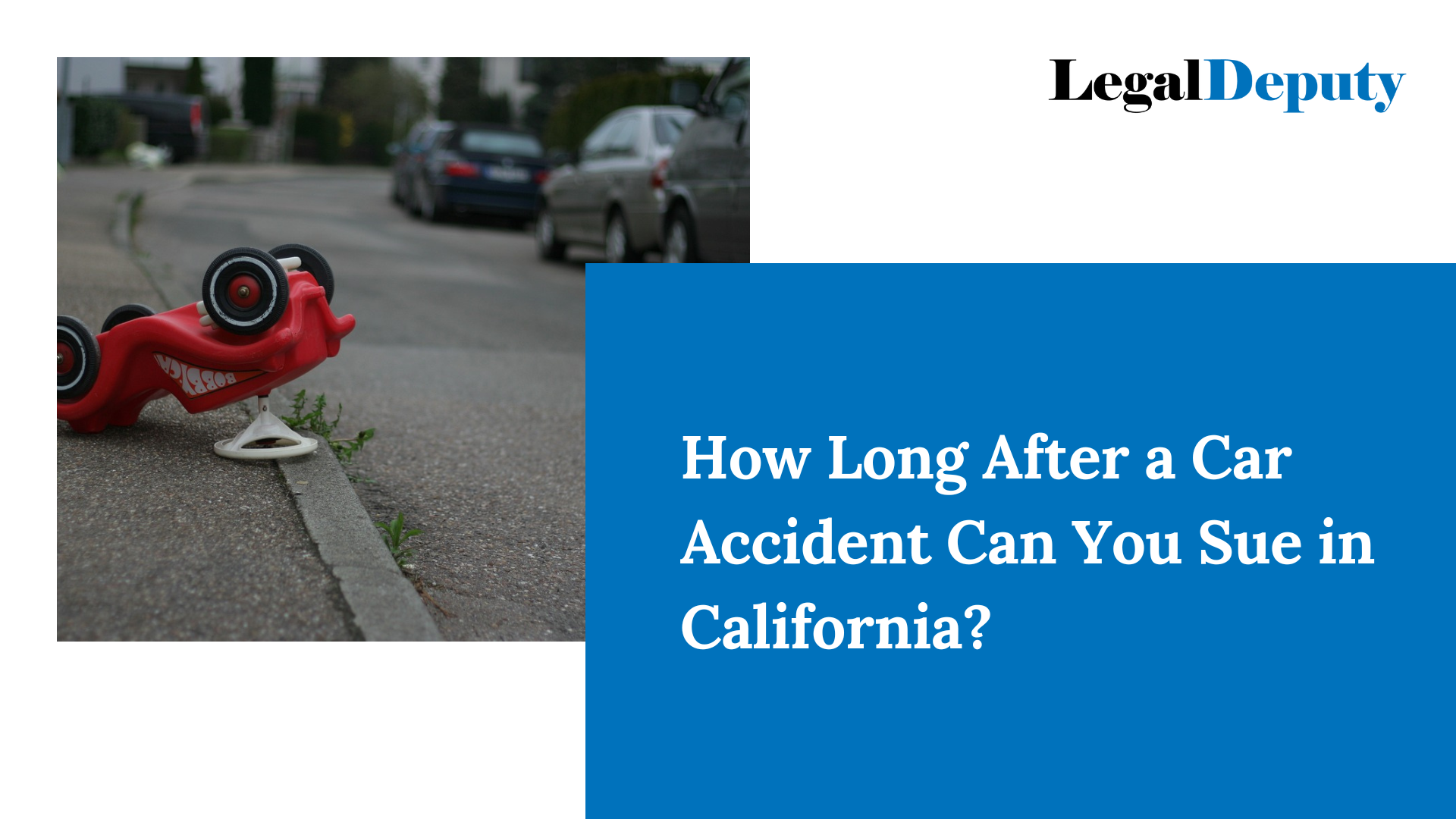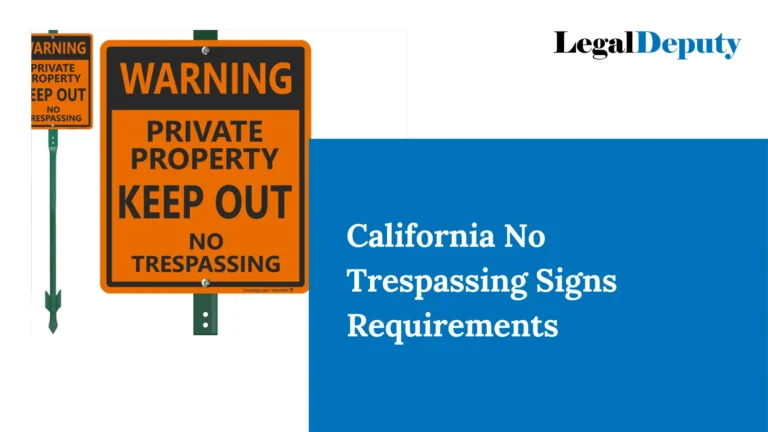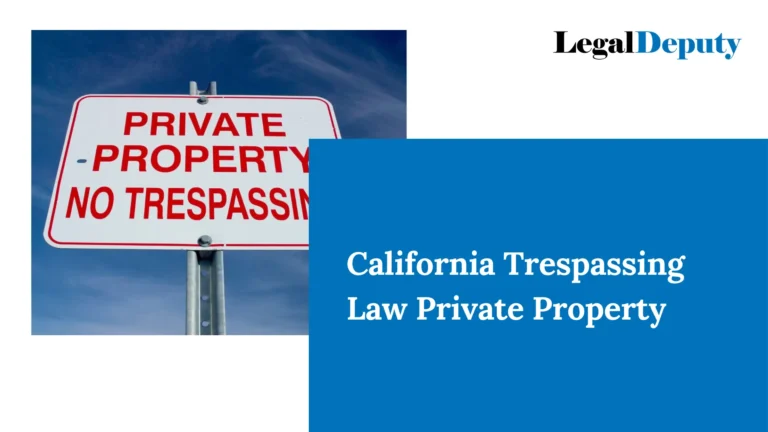How Long After a Car Accident Can You Sue in California?
Being involved in a car accident is often overwhelming, and understanding your legal rights afterward can feel just as challenging. If you’re considering suing for injuries or property damage from a car accident in California, it’s critical to act within specific legal time limits, known as the statute of limitations.
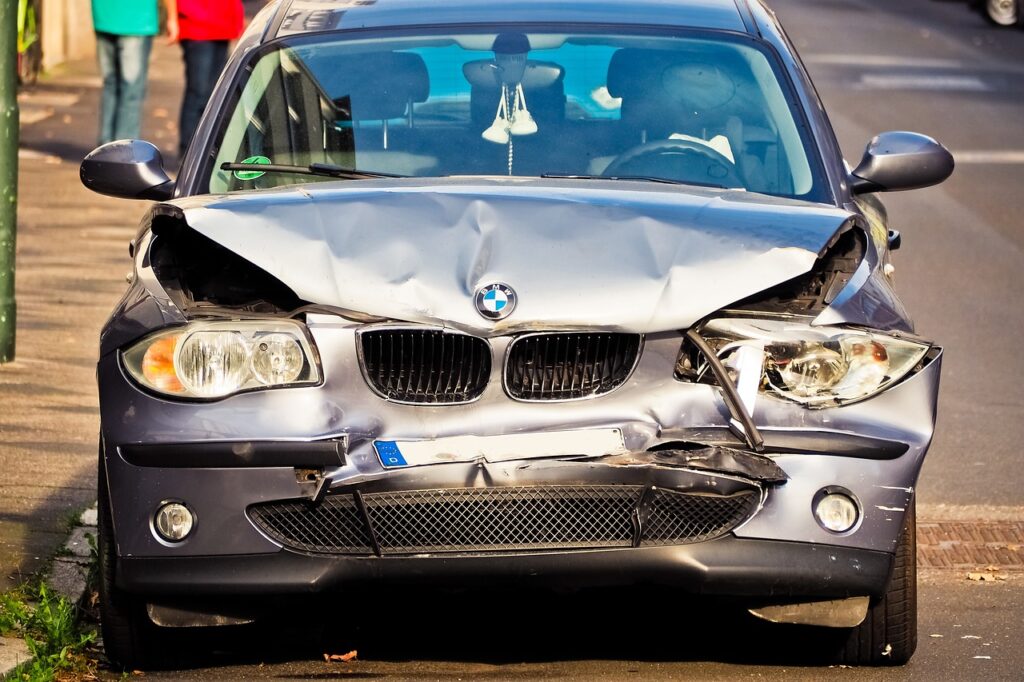
In this post, we’ll walk you through the deadlines, exceptions, and other factors to keep in mind when filing a lawsuit after a car accident.
Understanding California’s Statute of Limitations for Car Accidents
In California, the time limits to sue after a car accident are clearly defined under state law. The statute of limitations sets the window of time in which you must file a lawsuit or risk losing your right to sue altogether.
Personal Injury Claims: 2-Year Deadline
If you’ve suffered physical injuries in a car accident, California law allows you to sue the at-fault party within two years from the date of the accident. This 2-year window applies to claims involving bodily injuries, whether it’s for medical expenses, pain and suffering, lost wages, or other related damages.
For instance, if your car accident occurred on January 1, 2023, you would have until January 1, 2025, to file a personal injury lawsuit.
Property Damage Claims: 3-Year Deadline
If the accident resulted in damage to your vehicle or other personal property, the time limit is a bit more generous. You have three years from the date of the accident to file a lawsuit seeking compensation for property damage.
For example, if the crash caused extensive damage to your car, but you weren’t injured, you can file a property damage lawsuit until January 1, 2026, if the accident occurred on January 1, 2023.
What Happens If You Miss the Deadline?
Failing to file your lawsuit within these time limits can have serious consequences. Once the statute of limitations expires, California courts are likely to dismiss your case, and you will lose the right to pursue compensation for your injuries or property damage.
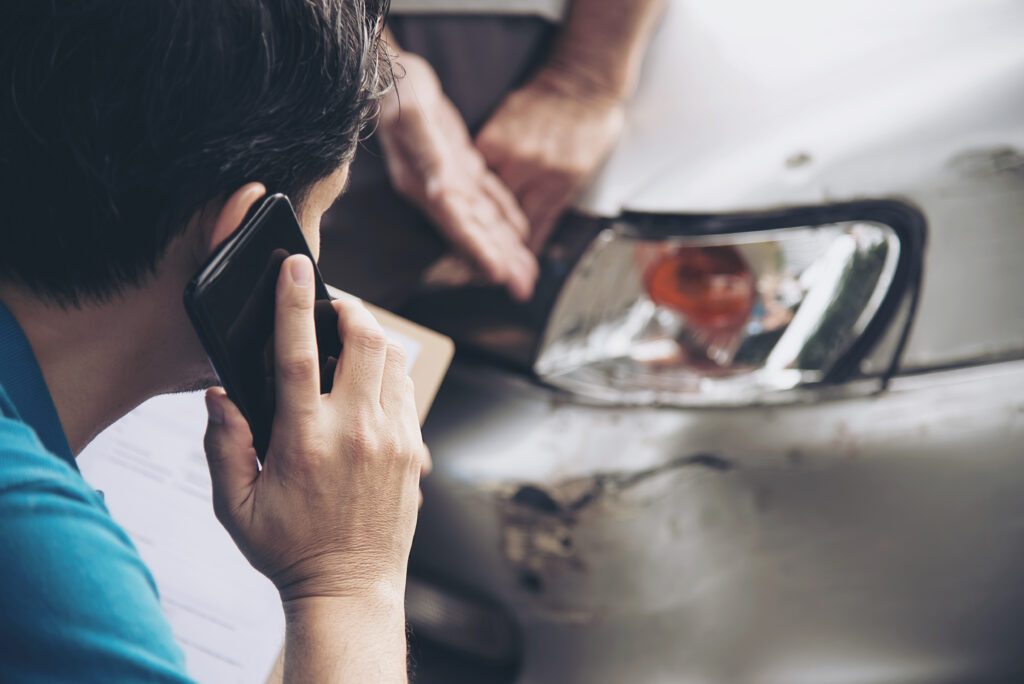
There are very few exceptions to this rule, so it’s vital to be aware of these deadlines and act promptly.
Want a Free Consultation?
Why Are There Different Deadlines for Personal Injury and Property Damage?
The law treats personal injury and property damage differently because bodily injuries often require more urgent medical attention, documentation, and legal consideration. In contrast, property damage—while important—does not usually involve the same time-sensitive health concerns, thus allowing a longer filing period. Understanding these distinctions is crucial when determining how long you have to sue.
Exceptions to the Statute of Limitations
While the deadlines mentioned above are firm in most cases, California law does provide some exceptions that may extend the time you have to file a lawsuit. These exceptions include:
1. Minors and Incapacitated Individuals
If the injured party is a minor (under 18) at the time of the accident, the statute of limitations doesn’t start until the minor turns 18. This means that the minor has until their 20th birthday to file a personal injury lawsuit. Similarly, if an individual is mentally incapacitated at the time of the accident, the time limit may be extended.
2. The “Delayed Discovery” Rule
In some cases, the full extent of an injury may not be immediately apparent. If you discover an injury later (like a hidden medical condition), you may be able to extend the statute of limitations under California’s “delayed discovery” rule. The clock starts ticking from the time you discover (or reasonably should have discovered) the injury, rather than the date of the accident.
3. Absence of the Defendant
If the person responsible for the car accident leaves California for a prolonged period after the accident, the statute of limitations may be paused (or “tolled”) until the defendant returns to the state.
These exceptions can be complex, so it’s crucial to consult a legal professional if you think you might fall under one of these categories.
When Should You File for Personal Injury vs. Property Damage?
Now that you know the statute of limitations for each type of claim, it’s important to distinguish between personal injury and property damage cases.
- Personal Injury: Includes claims for physical harm, such as medical bills, pain and suffering, and lost wages.
- Property Damage: Relates solely to the repair or replacement of damaged property, like your car.
You may file both types of claims separately if necessary, but it’s often more efficient to handle them simultaneously. Still, remember that personal injury claims have a shorter deadline than property damage cases, so don’t delay on injury-related lawsuits.
Steps to Take After a Car Accident
If you’ve been in a car accident, there are immediate steps you should take to protect your legal rights and preserve evidence:
- Seek Medical Attention: Prioritize your health. Even if you feel fine, injuries like whiplash or concussions may not appear right away.
- Document the Accident: Take photos of the scene, get witness information, and make notes of what happened.
- File a Police Report: It’s essential to file an official police report to document the accident, especially for future legal claims.
- Contact a Lawyer: A lawyer can help ensure you meet the statute of limitations deadlines and handle the legal process correctly.
Want a Free Consultation?
Acting quickly can preserve crucial evidence, helping your case should you decide to sue.
Comparative Negligence in California
California follows a comparative negligence rule in car accident cases. This means that even if you were partially at fault for the accident, you can still recover damages—your compensation will simply be reduced by the percentage of your fault. For instance, if you were found 20% responsible for the accident, and your damages totaled $100,000, your compensation would be reduced by 20%, leaving you with $80,000.
This rule highlights the importance of not delaying your lawsuit, as evidence and witness testimonies may fade over time, making it harder to prove fault.
Why You Shouldn’t Delay Filing a Lawsuit
While California gives you up to two or three years to sue for a car accident, waiting too long can harm your case. Evidence can deteriorate, witnesses may forget critical details, and the process of gathering all the necessary documentation (like medical records) can take time.
Additionally, insurance companies may take advantage of any delay to reduce or deny your claim. The sooner you start the legal process, the better your chances of securing fair compensation.
Conclusion
So, how long after a car accident can you sue in California? In most cases, you have two years for personal injury claims and three years for property damage claims. However, exceptions like the involvement of minors or delayed injury discovery may extend these deadlines.
If you’ve been in a car accident, don’t wait to explore your legal options. Reach out to a legal professional promptly to ensure your rights are protected and you meet the necessary deadlines to file a lawsuit.

